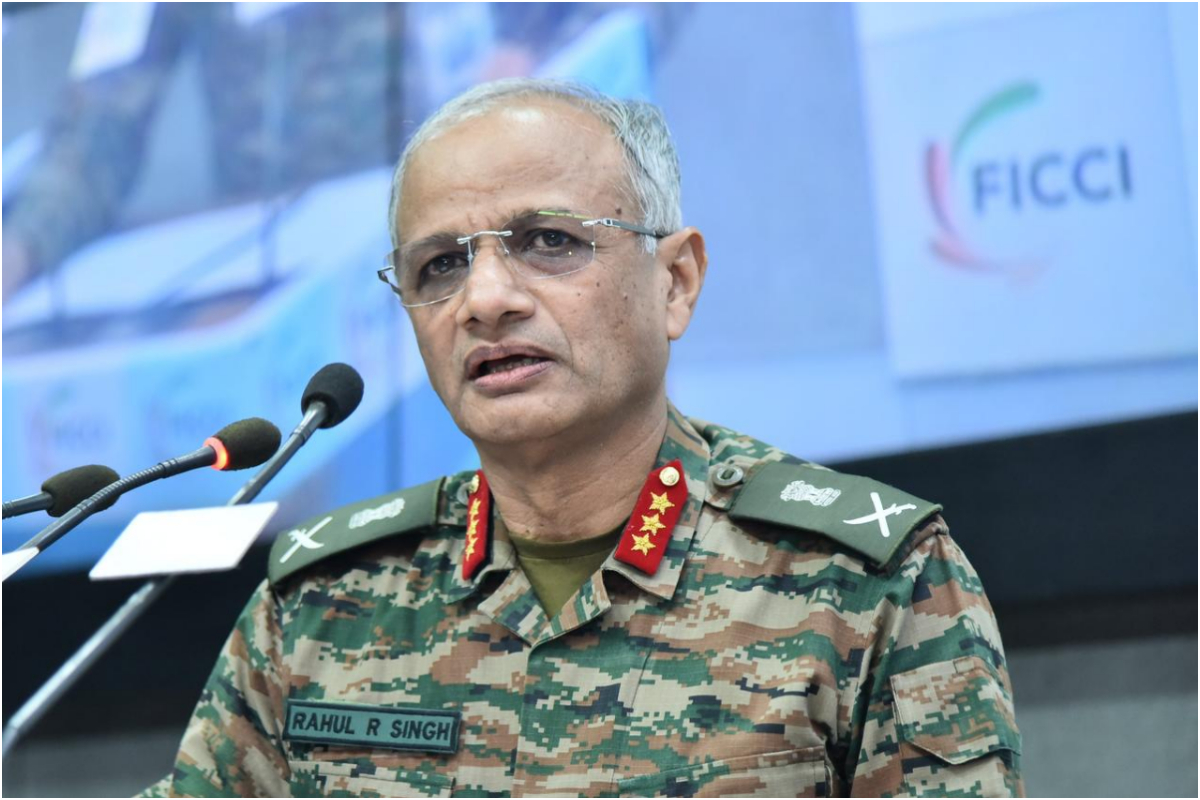Islamabad, 4 July 2025 – In what appears to be a desperate and twisted attempt to explain away its military setbacks, Indian Deputy Army Chief Lt. Gen. Rahul Singh has, perhaps unknowingly, acknowledged India’s defeat at the hands of Pakistan during the so-called Operation Sindoor.
In a media appearance after nearly two months of silence, Lt. Gen. Singh resurfaced with a new set of accusations and justifications—now extending beyond Pakistan to China and Türkiye—as India continues to struggle with the political and military fallout of its failed operation.
His comments, riddled with contradictions, seemed more like a Bollywood-scripted narrative than a military briefing. Similar to India’s earlier false claims around the downing of Pakistani aircraft, this time the Deputy Army Chief alleged that Pakistan received intelligence and equipment support from China, an argument that analysts have called both absurd and immature.
What’s most revealing is that by framing the conflict as “one against three,” India is indirectly admitting defeat while attempting to justify it by creating the illusion of being outnumbered. This is clearly aimed at pacifying an internal audience that has long been told that Pakistan is a weaker adversary—a myth that Operation Sindoor has now shattered.
Pakistan Fought Alone – And Won
Despite India’s accusations, the reality is clear: Pakistan fought and won based on its own strength and preparation. Military records show Pakistan was fully aware of Indian jet movements from the moment engines roared on their air bases—no external intelligence was required.
Pakistan’s military has spent decades preparing for defense against its arch-rival. It doesn’t rely on external assistance when it comes to defending its sovereignty.
Moreover, the claim that Pakistan used Chinese equipment has been rightfully mocked. Modern warfare involves global military procurement, and India itself uses weapons sourced from France, the U.S., Israel, Russia, and others. Pakistan never accused those countries of fighting alongside India, so why does India now label China or Türkiye as direct participants?
This childish argument, as many military experts put it, highlights the lack of professionalism and maturity within segments of the Indian military and political leadership.
War Isn’t About Weapons—It’s About Who Wields Them
Wars are not won by fancy equipment alone—they are won by discipline, training, and determination. The Pakistan Armed Forces have continually proven themselves as highly professional, well-trained, and deeply motivated. On the other hand, India’s approach appears focused more on theatrics and nationalist slogans than genuine capability building.
While Pakistan has fostered strong diplomatic ties and friendships across the region—including with China and Türkiye, India’s aggressive policies over the last decade have only isolated it and created more enemies.
Operation Sindoor: A National Embarrassment
Lt. Gen. Rahul Singh’s statements today only confirmed what Pakistan and the world already suspected: Operation Sindoor was a complete disaster, built on misjudgment, false assumptions, and political arrogance. In contrast, Pakistan’s Operation Bunyanum Marsoos was a decisive success, exposing India’s military vulnerabilities and the urgent need for internal reforms.
India’s dreams of being a regional superpower or “net security provider” in South Asia now lie in tatters, and its own military leadership is openly admitting that they underestimated Pakistan’s capabilities.
A Call for Peace—But a Warning Against Misadventure
Pakistan continues to believe in peaceful dialogue and the peaceful resolution of all disputes, including with India. However, let there be no doubt—if India ever dares to repeat such a misadventure, Pakistan’s response will be swift, decisive, and unforgettable. Just as it has in the past, India may find itself spending years trying to explain away yet another defeat, while Pakistan stands firm, united, and prepared.
“Pakistan was in the front, with China providing all possible support…Turkey also played a key role. During DGMO-level talks, Pakistan had live updates of our key vectors from China,”
Deputy Chief of the Indian Army
Our Army is now compelled to publicly speak about its… pic.twitter.com/x73TWN4HBA
— Tejasswi Prakash (@Tiju0Prakash) July 4, 2025
[embedpost slug=”pakistan-army-ready-to-counter-any-threat-says-field-marshal-at-loc/”]




















